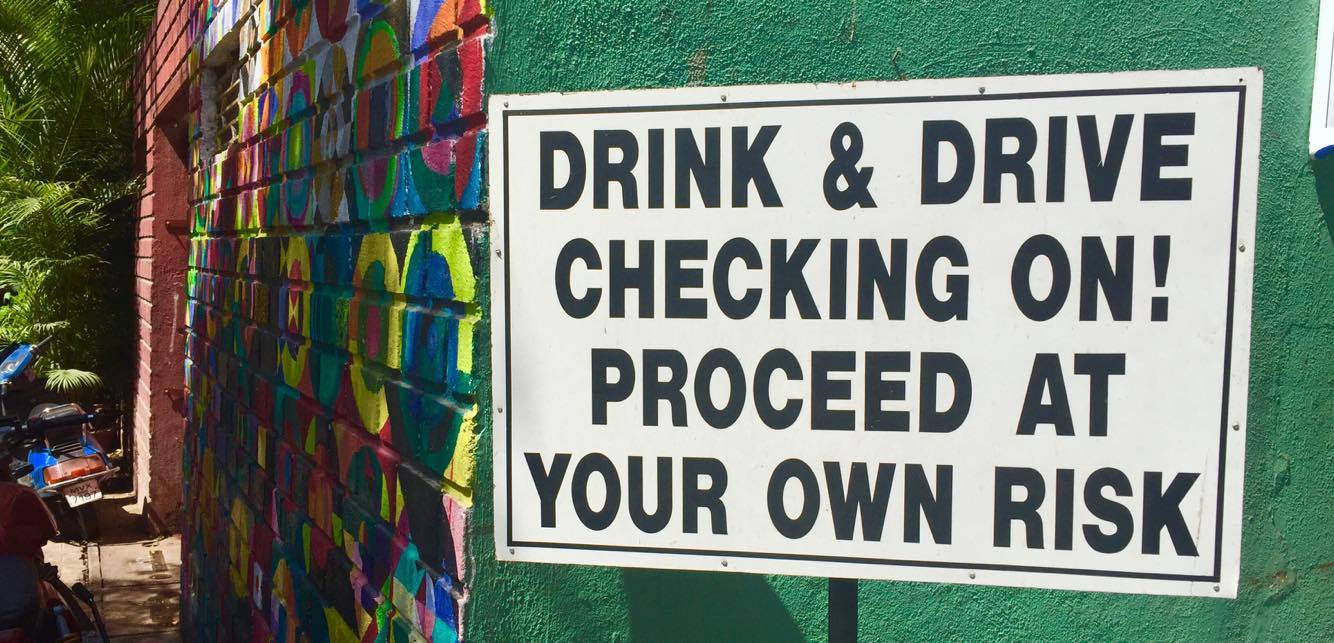Bars can provide the perfect opportunity to people watch. It’s a fascination many of us have – plunging us into a wholly different continent and culture would only add to that. What I would come to see, however, was pretty horrifying.
Standing in a riverside bar in Pune, a liberally minded university city, I’m talking to a guy who is obviously drunk. That’s fine. I’ve had a few beers and feeling a bit unsteady myself. After a stumble that narrowly misses a waiter in a carry-on film style slip he says he’s going home.
Fair enough – we all can have a bit of a tumble and decide we’ve had enough. But instead of wandering towards the taxis, he blazingly gets out his car keys and waves them around his finger towards his friends in a suggestive manner. Surely not? Surely, you – a man who can barely stand – does not want to drive home in a heavily congested and aggressive road system?
Worse. He wanted to drive home and his friends loved it. A free ride home. I glanced at another British student who gave me the same look back. I was mortified.
I admit, the British aren’t perfect when it comes to driving practices. We do, now, have a culture though that is highly skeptical of knowingly drink driving in a state that could put other peoples lives at risk. The scene in the bar in Pune, however, felt to me to be the biggest culture shock I had faced during my time here.
Armando, a former head of the student body at Symbiosis School of Liberal Arts, told me that “there isn’t the infrastructure to get people home” – a beer still in his hand. I find this a little hard to believe to be the real reason. Lined up outside the bar were a dozen Tuk Tuk’s ready to cart people away for a matter of pence.
A more sober looking girl caught our worrying gazes and tried to offer some justification. She said how some people think the risk “outweighs the possibility of us being left alone.” She has a good point, it could be very dangerous for a girl to travel back on her own at night.
Still, Indian roads are some of the most dangerous in the world. 1.3 million people die on the roads here every year and 70% of these are down to alcohol related crashes. That’s a million people dying – seemingly down to reckless laziness.
It’s a problem that’s not just limited to cities too. The former Joint Commissioner of Police Maxwell Perreira has recently said to the national press that “round 99% of the fatal accidents that occur outside the cities are due to drunken driving.”
So is this a problem that’s around for good? Indian culture is shifting away from a drink driving culture both on a legal level and a moral level.
In 2015, the Supreme Court told regional police forces and local justice systems to “crack down” on the problem with first time offenders facing the possibility of jail time for drink driving.
This is visible on the ground. Three days after the first chat in the bar we returned for barbeque with unlimited beers – all for a tenner. As we entered there was a sign, “DRINK DRIVE BEING CHECKED” written in bold text stared at the hundreds of young people piling in.
The event ended a few hours later – people stumbling towards home grinning with a mixture of Budweiser and Chicken filling there stomachs. Things take a more sinister turn around the corner.
A dozen uniformed police officers were stopping every car that left the bars car park. Armed with breathalyzers and man-power, the Pune City Police force seemed eager to honor the message the sign we passed earlier had promised.
I’m not sure how many, if any, of the drivers were over the limit and whether they will be prosecuted but it sends a clear message. No matter what class or caste, India is no longer tolerating this dangerous habit.
